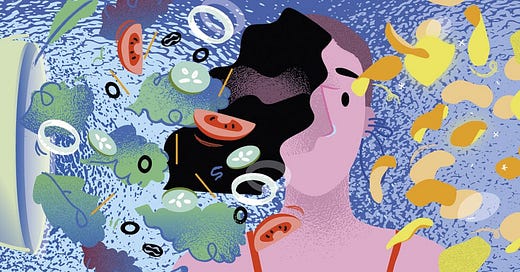Recently I was having a conversation with a few of my friends where we started talking about Free will, do we really have it or not? So before jumping into it let’s conduct a simple exercise.
Think of a memory of a movie. Got it?
What came to your mind?
Let’s say you thought of “ABC”.
Pretty straight forward right? The movie just came to your mind directly when I asked the question.
Now let’s think about this for a bit. If you were to think about why it came to your mind, you would definitely have some reason. So does that mean your movie was already predetermined by the past action/memory? Does it mean that you didn't have free will, but it was already determined what you were going to say?
KABOOOM!! Haha, don’t panic. Let’s hold this thought and talk about where the concept is coming from.
What is free will?
According to research conducted by various neuroscientists and Sam Harris, free will is an illusion. In his view, we are the mere conscious witnesses of decisions that deep in our brains have already been made. Everything one has done couldn't possibly have happened any other way, and everything one does will be decided — without any input from the conscious self.
This might sound berzerk at a first glance but it is the truth. We are all conscious beings, who are capable of thinking. Our present is fully dictated by what has happened in the past because we think about things/decisions rationally. In other words, we are the mere conscious witnesses to decisions that, deep in our brains, have already been made.
Dennet, who is another scholar on the topic of Free will argues that even if some of our thoughts and actions are the product of unconscious causes, they are still ours. Anything that our brains do or decide is something we have done or decided. All Harris has done in his analysis is drive a wedge between our conscious and unconscious selves: we are still free to consciously shape our worlds — and so influence our unconscious — however, we desire.
The two opinions can be divided into two divisions, Harris's view is of a deterministic approach whereas Dennet thinks of it in a compatibilist sense.
‘Compatibilism’ is a movement that accepts the neuroscientific picture of the brain but argues there's room within it for the idea that we remain free in how we think and act in all the ways that matter.
Do our choices still matter then?
We might think that, if we have no free will, we may as well just sit back and do nothing — enjoy the ride of our uncontrollable lives and spectate the unfolding of our future.
This is where most people take free will in the wrong sense. Having a free will or not our choices still, matter. What we decide to do shapes the paths we take in life. The point is that
We cannot decide what we will decide to do. You can change your life, and yourself, through effort and discipline — but you have whatever capacity for effort and discipline you have in this moment.
You are either lucky or you aren’t. You just don’t have the power to make your own luck.
This conclusion — that our choices matter but that we cannot choose them — has profound consequences for our ideas of personal and moral responsibility — not to mention blame, justice, success, failure, and the entirety of our social, societal, and legal systems.
But that’s a moral discussion for another day.
For now here are some further readings on this subject:




